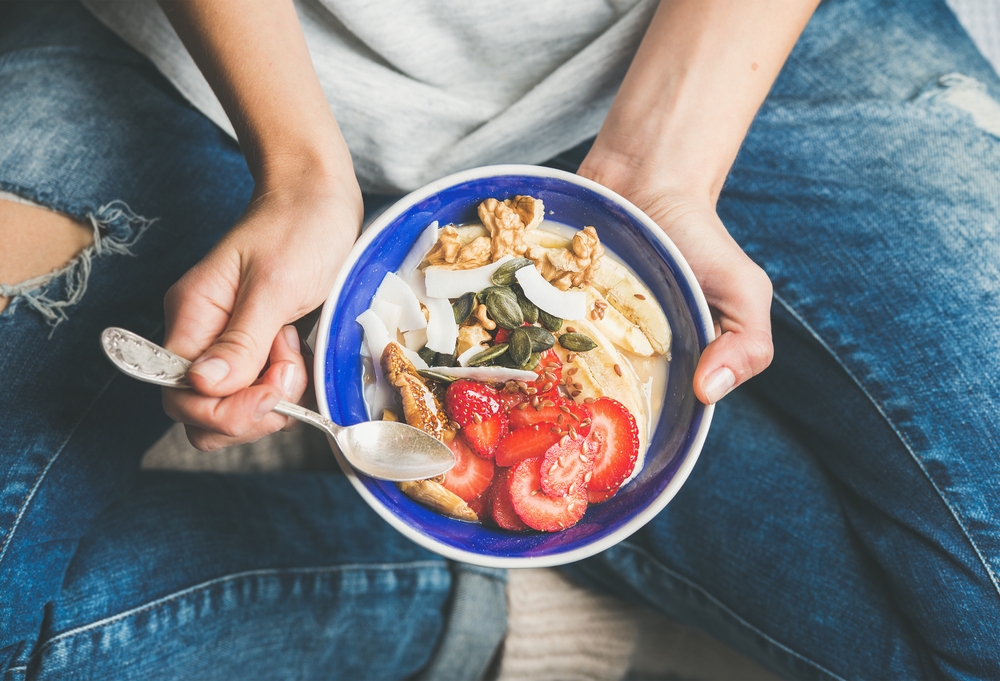
As the saying goes, the plan for a day lies in the morning. People also attach great importance to breakfast. There is also a Chinese saying that [breakfast is gold, lunch is silver, dinner is copper], and there is even a saying that breakfast provides 70% of the nutrition of the day, believing that breakfast is the most important meal of the day.
Is breakfast really the most important thing?
Nutrition Suggestions for Breakfast
The plan for a day lies in the morning. Every day’s health also starts with breakfast. It is better to eat breakfast healthily every day. Even if you are busy, don’t neglect breakfast.
In fact, from the perspective of reasonable diet, three meals a day are very important, and there is no saying which is better or worse.
The Dietary Guidelines for Chinese Residents (2011) recommend that three meals a day should be distributed reasonably, and it is best to eat regularly and quantitatively. Eat breakfast every day and ensure sufficient nutrition, eat lunch well and eat a moderate amount of dinner.
However, this does not mean that breakfast is the most important, while the rest can be ignored. Those who say that breakfast provides 70% of the nutrition needed for a day are completely exaggerating the role of breakfast.
In fact, the energy provided by breakfast should account for 25 ~ 30% of the total energy of the whole day. Of course, it can also be adjusted according to one’s own situation.
However, the reality is that many of us do not eat breakfast, and even if we eat it, we do not eat it healthily.
China has investigated the breakfast behavior of urban residents in Guangzhou, Shanghai and Beijing. It is found that the breakfast eating rate of residents in these three areas is between 74.8% and 90.5%, and the number of people under 35 who do not eat breakfast is relatively large. However, it is generally said that the reason for not eating breakfast in the morning is [no time in the morning].
At the same time, the survey found that even if they eat breakfast, most people still eat steamed bread and fried dough sticks, which are too single in nutrition, not healthy.
Breakfast, or not?
With the quickening pace of life, people often go to bed late and get up late, and people who do not eat breakfast are becoming more and more common. Many people will think: they get up late anyway, lunch will be over in a short time, and what breakfast will be enough for lunch. Is it okay not to eat breakfast?
1. Three meals a day should be regular.
Breakfast is a part of daily diet, and eating breakfast every day is also a healthy lifestyle advocated by the World Health Organization (WHO).
Breakfast, as the first meal of the day, is crucial to dietary nutrition intake, health status and work or study efficiency. Why?
Breakfast is the longest time from the previous dinner, generally more than 12 hours. The glycogen stored in the body has been exhausted and should be supplemented in time to avoid low blood sugar and even dizziness. Blood sugar concentration lower than normal will lead to hunger, decreased brain excitability, slow response, inattention and affect work and study efficiency.
2. Eating breakfast can better ensure study and work in the morning.
Not eating breakfast is also easy to cause insufficient energy and other nutrients. Research shows that children’s not eating breakfast leads to insufficient nutrient intake, which is difficult to get sufficient supplement from lunch and dinner.

Can you lose weight without breakfast?
Some people say that not eating breakfast is equivalent to eating less and reducing energy intake. Is that conducive to weight loss? In fact, skipping breakfast not only cannot promote weight loss, but may even make you more likely to gain weight.
Some studies have compared obese people who eat breakfast with those who do not eat breakfast and found that there is no significant difference in weight loss between those who eat breakfast and those who do not eat breakfast.
A randomized controlled study by the University of Bath followed 33 subjects for 6 weeks. Researchers divided these normal weight people into two groups, one group ate 700 kilocalories of breakfast a day and the other group did not eat it. The results showed that there was no difference in their blood sugar level, blood cholesterol and body metabolic rate.
Another study followed more than 300 obese people for 16 weeks and found that there was no difference in weight loss between those who ate breakfast and those who did not eat breakfast every day. Skipping breakfast does not necessarily help to lose weight.
In fact, skipping breakfast not only does not necessarily help to lose weight, but may even lead to obesity.
In Taiwan, a large survey involving 15,340 people found that, Those who eat breakfast less than once a week are also more likely to be obese. Japanese scholars have found that people who do not eat breakfast are also more likely to be overweight or even obese, according to research and analysis of people and obesity in countries and regions in Asia and the Pacific. European research and analysis have also found the same phenomenon.

Why do you gain weight instead of eating breakfast?
Due to the long interval between breakfast and dinner before breakfast, many people are almost [hungry] by noon, so lunch will be wolfed down and reward themselves, but it is easy to eat more. Moreover, although these people did not eat breakfast, they ate or did not eat, hunger was always there, and many people would eat more snacks, virtually eating a lot of things, which eventually led to obesity.
Therefore, whether you can lose weight or not depends on the intake of total dietary energy. If you don’t eat breakfast, but eat a lot at noon and don’t exercise, it is difficult to lose weight.
Don’t eat breakfast will get gallbladder stones?
Others said that eating breakfast in the morning helps to promote bile excretion, which accumulates in the gallbladder overnight. If it is not stimulated to excret in the morning, the risk of crystallization and even stones will increase over time. Is it true?
Gallstone is a disease that produces gallstones in bile duct or gallbladder, which may cause severe abdominal pain, jaundice, fever and other symptoms. It is the most common biliary tract disease. There are many kinds of gallstones, including cholesterol stones, bile pigment stones and mixed stones.
In fact, there are many factors that cause people to suffer from cholecystolithiasis. Apart from physiological congenital factors, bacterial infection, parasitic infection and other factors, unhealthy diet and living factors are also important inducements. According to a comprehensive report by NIH in the United States, these factors mainly include overweight, obesity, rapid weight loss, diet, metabolic syndrome, diabetes and insulin resistance.
Among them, unhealthy diet mainly refers to the diet habits of high energy, high carbohydrate and low dietary fiber, such as refined carbohydrate diet such as white bread and rice. If you eat these foods in large quantities, you will also increase the risks of overweight, obesity, diabetes, insulin resistance, etc., which is equivalent to a vicious circle.
Therefore, unhealthy diet patterns and habits may increase the risk of gallbladder stones, but not eating breakfast does not necessarily lead to gallbladder stones, nor is it necessarily the culprit leading to gallbladder stones, so we need not worry too much.
From the perspective of healthy diet and prevention of cholecystolithiasis, we should try our best to form the healthy habit of eating breakfast regularly.

How should I eat a healthy breakfast?
Breakfast food should be diverse and reasonably matched, mainly starting from ensuring sufficient quantity and quality standards.
In terms of quantity, breakfast should be full. The Dietary Guidelines for Chinese Residents (2011) recommended by the Chinese Nutrition Society suggest that breakfast should provide 25% ~ 30% of the total energy throughout the day to ensure the efficiency of work and study throughout the morning.
For example, most boys, a steamed bun or a steamed bread, will definitely not have enough to eat, so they can eat more.
In terms of quality, the food for breakfast should be as diversified as possible. Breakfast should provide rich nutrition for the human body. The food should be diversified, preferably vegetables, fruits, whole grains and egg milk.
Breakfast should have high-quality protein and sufficient dietary fiber, which will help eliminate hunger and prolong satiety, and will not be particularly hungry by lunch. Breakfast should also have a proper amount of fruits and vegetables to provide the body with sufficient vitamins and minerals.
Accustomed to eating soya-bean milk fried dough sticks every day, you may as well buy an apple with a banana or an apple. If you cook rice congee and eat steamed bread every day, you may as well add some vegetables, just a simple cold mix or blanch, and add an egg to make it more perfect.
This article has passed the peer review of Dr. Clove’s peer review expert committee.Clove Garden is exclusively authorized and cannot be reproduced without permission.
, Station Cool Hailuo Creative
